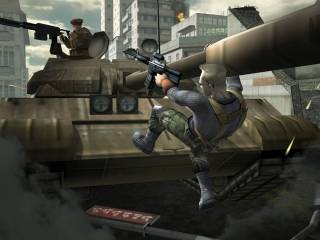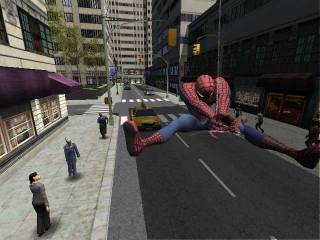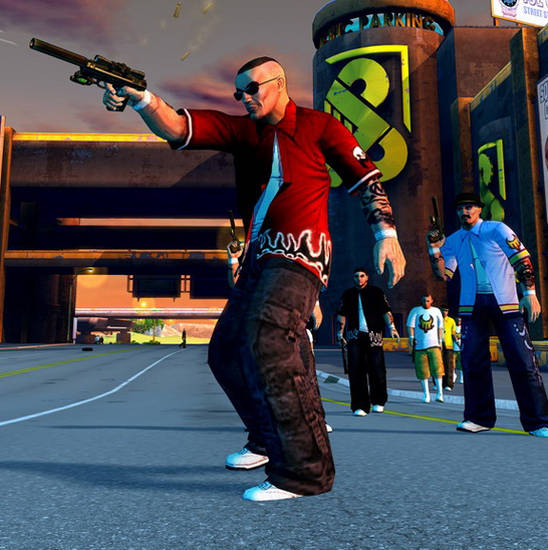Open-World Ruckus: A Sandbox of Variety
By ImperiousRix 1 Comments
Following its release back in 2001, Grand Theft Auto III quickly became the most talked about game in some time. Despite much of it being outside of the gaming community concerning the questionable morality that the game advertised, what developers and players were really paying attention to was the way the game played. Although hub-based adventure games and many role-playing games before had put the player in large explorable environments, sometimes with the illusion of choices, this was the first time that it seemed that the player could do anything that they truly wanted to know. This success and innovation led to what would be come to be called "GTA clones". Among these included the True Crime series, 25 to Life, and many other games that looked to capitalize on the success of Rockstar's magnum opus.
The problem with these games seemed to be that they didn't only seek to emulate the sandbox style that GTA III had popularized, but they wanted to take the setting and inherent "BADITUDE!" that made Grand Theft Auto a hit among the young folk. However, there were, and continue to be, crops of games that come out that take the general skeleton of the now eight year old game and use it to its fullest; to innovate themselves and create something wholly unique. This blog serves as a brief overview of some of the more notable games that came out in the wake of GTA III.
Controlled Chaos (Mercenaries; Pandemic/Lucasarts)
With the person to person elements of sandbox games wholly established by Rockstar, Pandemic focused its own efforts instead on whole-sale destruction. What came out was Mercenaries: Playground of Destruction, a name fitting of what remains one of the funnest and overall most jubilantly chaotic open-world games. Players were placed into a war-torn North Korea, charged with collaborating with the military occupiers to obtain (dead or alive) a whole brace of ne'er do wells
Spiritual Successor: Volition Inc.'s Red Faction: Guerrilla.
Super Human Sandbox (Spider-Man 2; Treyarch/Activision)
It seems a no brainer nowadays, but back when Spider-Man 2 was released in 2004, nobody had yet put a superhero into the
Spiritual Successors: Radical Entertainment's Prototype and Sucker Punch's InFamous.
Family Affair (The Godfather; EA and Mafia; Illusion Softworks)
The criminal activity thrown forward by GTA III seemed like it could easily be transformed into a game solely based around a classier take on organized crime. Sure enough, multiple developers had this same idea and what came was two games that were drastically different, yet revolved around the same central idea of putting the player in the mafioso lifestyle. While, Mafia focused on era-accurate presentation, cars, and a more involved story, The Godfather sought to implant one into the classic story in only the most superficial sense, instead focusing on unique elements like extortion and dual stick combat. The real staying power of these games remains their ability to identify how well the setting fit with the gameplay style and delivering on two wholly unique and satisfying experiences. While The Godfather went on to have a sequel which further differentiated itself with empire building elements, Mafia II still awaits its official sequel; still bogged down in huge delays.Successor: EA Redwood Studio's The Godfather II

The Current Day
With the Grand Theft Auto series still going strong, it becomes even more difficult for games to cut out individual identities for themselves. Besides the games mentioned above, two games come to mind as being ones to watch from the genre in the current gen. First off is what could perhaps be considered a parody of sorts, the Saints Row series. Two games have been released from this franchise, and it seems to focus on what would happen if the developers of GTA completely lost their minds. What remains is a game that is pervasively silly and pervasively fun. The other series is the Crackdown series. Crackdown successfully blends the shooting and driving elements of GTA with the superhuman exploits of games like Spider-Man and Hulk: Ultimate Destruction. One thing is for sure, as time goes on, new sandbox exploits carve out their own niche which other games proceed to expand on. Although "GTA clone" was once a derogatory term, the open-world genre has been one that, when emulated successfully, it becomes one of the most freeing and fun sub-genres on the market.I hope you enjoyed this case study. If you've read this much, you've read more than I could stand to write. Feel free to discuss or leave any comments or just point out what I got wrong or how I'm an idiot. Til next time, adieu.
